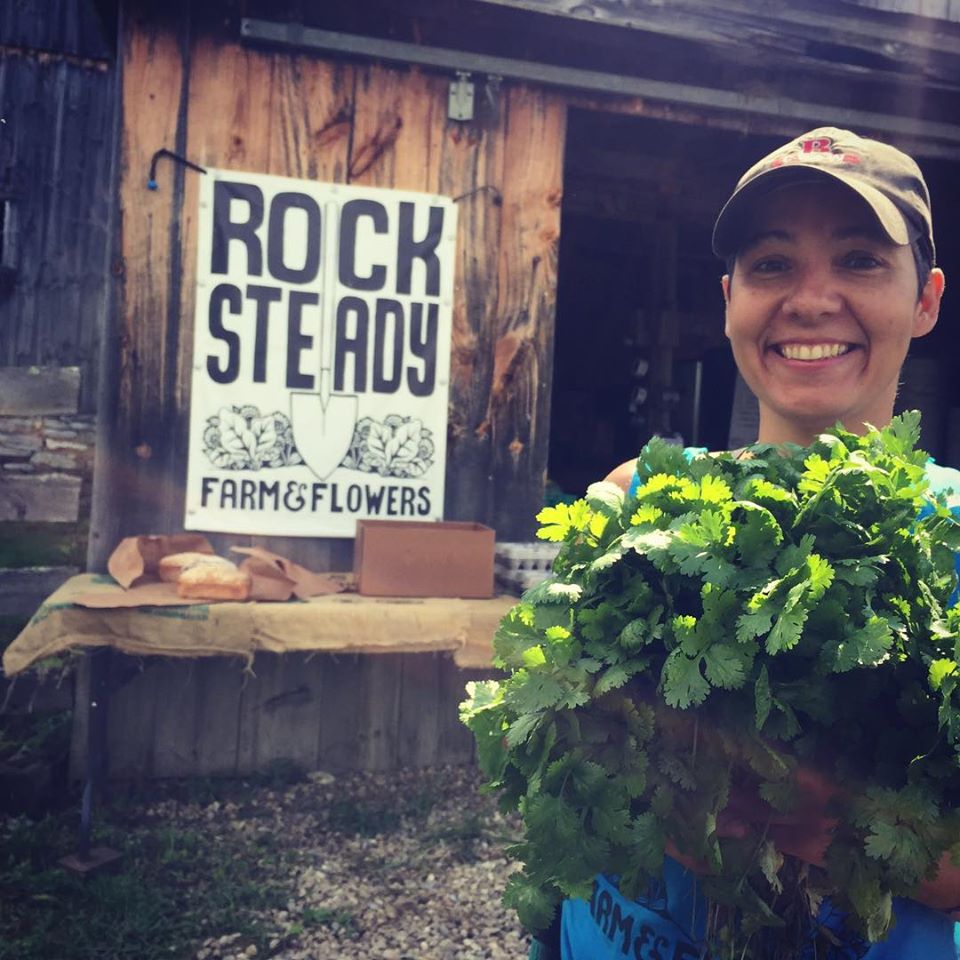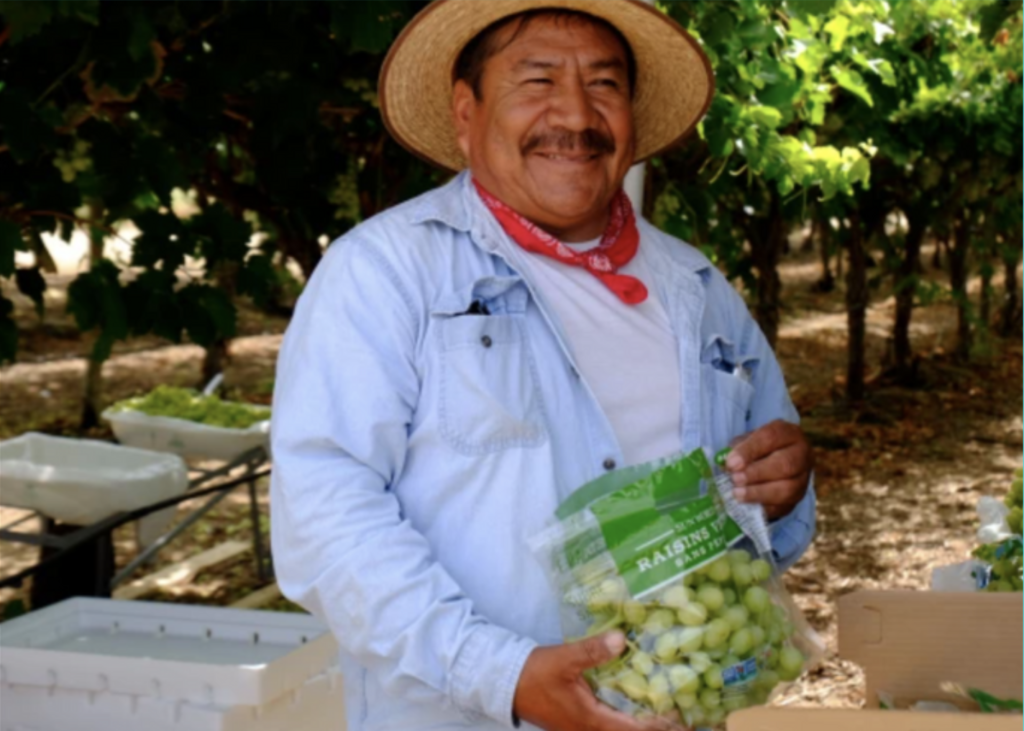Reparations and Non-Extractive Finance: Challenging Agribusiness as Usual
(this article first appeared in Pathstone Impact’s 2021 report “Investing in Regenerative Agriculture: Voices from the Field.”)

Is it possible to practice sustainable agriculture if the people who work the land don’t earn enough to sustain a family? Is farming really non-extractive if it relies on extraction from the communities that do the farming? Can the future of agriculture be just if the injustice it was built upon is not first repaired?
At Seed Commons, we believe that extraction from land and from people are inextricably related, and that if the people who grow organic food can’t afford to buy it, then it is not a sustainable system for our planet.
Seed Commons is a democratically run financial organization that uses non-extractive finance to support communities that are repairing their local economies as they build businesses that meet community needs. We are a nationwide cooperative of local organizations which finance worker cooperatives and cooperatively farmed agriculture, putting capital and decision-making power back into the hands of the people who know what to do with it, into the hands of people who know how to repair and enrich their own communities. We are reversing the extractive process, and our method works. Our investments have a transformational impact — the way we structure our investments directly transforms the relationships of power and capital within communities.
Non-extractive finance: reversing the history of ag financing
Non-extractive finance, in its simplest expression, means that the returns to the lender never exceed the wealth created by the borrower. The same way agriculture is only sustainable if it does not extract nutrients from the soil over time, so finance can only be sustainable if it does not extract from, but builds wealth in, communities. This means that when we get investment returns from a cooperative agricultural project, we are assured that wealth was also created for the laborers and their families. Non-extraction also means that we cannot protect our investments with collateral from the communities we are working with. This is a key to reversing the history of agricultural financing, as the use of ancestrally held lands to collateralize farm loans is one of the main ways that Black and indigenous farmers have lost control over their land and legacies.
And despite (or perhaps because of) the way that our finance centers the agricultural borrowers, our write-offs are a small fraction of our loans, and our fund has never had a net negative year. Our method has stood the test of time — we’ve been making these kinds of loans since 2005, and we’ve now grown to include more than 20 organizational partners who together have more than $15 million dollars committed in over 100 active loans. These methods, which have worked for us so well, also scale. And as our financing has grown, so has the size of our projects.
Non-extractive finance in action
The scale and function of our approach to agriculture financing can be seen in some of the non-extractive loans we’ve made to regenerative agriculture projects. California Harvesters is a $13 million employee-benefit company that employs more than 900 farm workers who provide labor to growers in the California central valley — under terms that do not exploit the workers. To help them get started, Seed Commons gave California Harvesters a capital stack of over $1M that was built on the $360,000 in startup capital we provided as well as considerable expertise in organizing workers.

Our aim has always been to reach deeper than the surface of any given problem. LINC Foods, in Spokane Washington, is working to build an entire cooperative ecosystem in their community. Financed by Seed Commons, they began as a produce wholesale cooperative, allowing small-scale farmers to band together and distribute healthy food. LINC still does that work. Recognizing the catalytic role of non-extractive finance, LINC is now becoming a member of Seed Commons itself, developing the capacity to bring non-extractive lending to the entire Inland Northwest region. Our ideas don’t just grow vertically, they propagate horizontally.
Our reparative approach to regenerative agriculture also means returning access to the land to those who have been denied it under industrialized agricultural systems. Rock Steady Farm in upstate New York is a women- and queer-owned farm that focuses on providing a space for LGBTQIA+ and BIPOC farmers to thrive. They center regenerative practices into how they steward the land and grow food. They feed hundreds of people through a CSA program, providing food boxes to people in their area as well as New York City. Through a combination of sliding scale pricing, fundraising, and community partnerships, they make sure that their food reaches people of all different incomes and lived experiences. In 2020, they partnered with another worker cooperative financed by Seed Commons, Brooklyn Packers, to distribute food for free to people in need as part of a program of mutual aid. They did all of this while running a farming business that cleared a profit.
Agricultural justice
Repairing our communities means fighting for a sustainable and just future in all different sectors of the economy, not just agriculture. Healing the environmental, health, and social wounds caused by extraction and exploitation requires systems-level thinking. At the same time that we hold this systems-level view, we recognize the core importance of agriculture to overall success. Agricultural justice has been baked into the DNA of Seed Commons from our earliest days as a national network.
The Southern Reparations Loan Fund (SRLF) is one of the founding organizational partners that came together to form what is now known as Seed Commons. SRLF, in turn, was founded by six southern economic justice organizations, including the Farmworker Association of Florida and The Federation of Southern Cooperatives. The Federation was itself founded in 1967 to provide economic relief to Black farmers under attack for involvement in Civil Rights activity. It continues to advocate and fight for cooperative development and Black land ownership in rural communities throughout the South. Fighting against discriminatory practices from government agencies and local commercial and financial institutions continues to be vital work we’re proud to support with our network.
The extractive mindset assumes that we can take whatever we want from the earth — and from people. Regenerative agriculture must regenerate soil and communities alike. It must be healthy for the earth, it must grow food that is healthy for those who eat it, and it must be healthy for those involved in the growing.
Regenerative practice is the practice of repair, including repairing the ecosystem and repairing the economy. Itrequires acknowledging that stopping the harm is not enough. It requires reparations. That’s why we work to move capital back into the hands of the people and communities from whom that capital was extracted in the first place. Only by that transfer of capital, by making communities competitive and economically sustainable, can we make our agriculture truly regenerative. By investing in us, you can help us move from regenerative agriculture to a regenerative world.